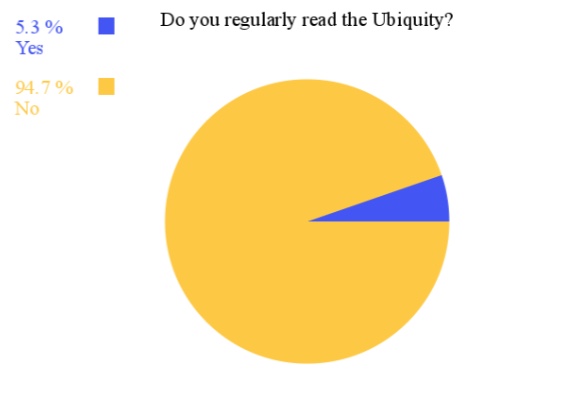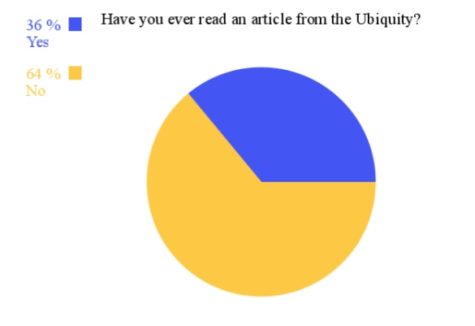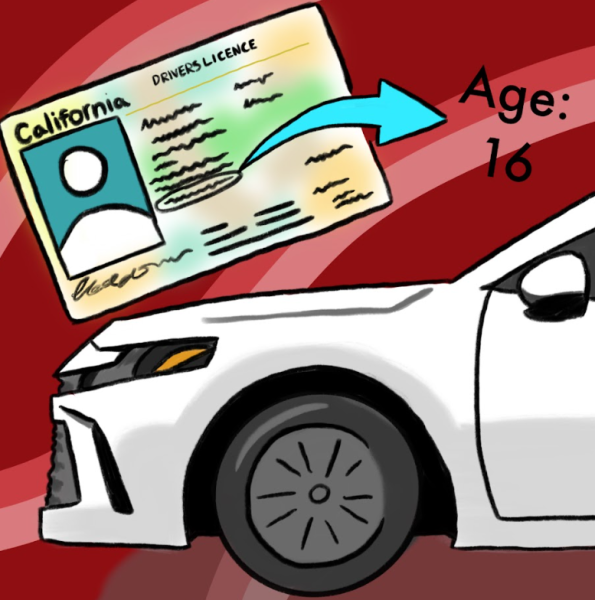Why the School Newspaper is Being Published Even Though No One Is Reading It

Picture by Mars Gifford
The year is 1961. After what seems like forever (which has probably only been about eighteen months of begging), your grandfather, then only a child, finally gets a TV. His family was the last on the block to get one, but he does not care because, finally, he can watch moving pictures any time he wants! His favorite show quickly became Bonanza, but his parents, your great-grandparents, loved ABC World News Tonight and even joked, “This is the future. Soon people won’t even be able to read!” Perhaps they’re right; since 1950’s, Americans and people all over the world increasingly look to the news on their iPhone, the TV, the radio, and even podcasts, not printed newspaper.
Chances are that you are reading this article online, but it is more probable that you are not reading this article at all. This past week, a number of Quartz Hill students were asked two questions: first, if they had ever read an article from the Ubiquity, and second, if they regularly read the Ubiquity. Of the 418 students surveyed, only 150 answered yes to the first question. Additionally, a number of respondents asked, in all seriousness, “What’s the Ubiquity?” Regarding the second question, all but nineteen people responded no. Note that “regularly reading the Ubiquity” is considered reading the Ubiquity at least once a month. These results may seem shocking, especially considering the amount of effort put in by the staff of the Ubiquity.
The data gathered prompted follow up questions like, “What would get more students to read the Ubiquity?” and “Is the Ubiquity accomplishing anything, and if not, does it hold the potential to in the future?” A few suggestions from Thomas Ortega and Emilie Llopis have been to “announce stuff” and “have more articles about the environment at school” and “current events at school…” Both said that with these changes, they and their friends would be more likely to read the school newspaper. These seem to be reasonable solutions, as a number of students have said that they read the Ubiquity when hard copies are printed and distributed directly. After all, it is much harder to ignore eager staff writers handing out tangible copies of the Ubiquity than the weekly social media posts.
Additionally, Llopis commented that the last article she read was about the swim team, because she is one of the members of the team. If articles cater to the students interests and daily lives, interest in the Ubiquity will grow. Students want to read about what they and their friends are involved in; they want to know what is going on. However, a majority of the articles published so far this school year have been regarding school events like Senior Sunrise and changes from security on campus to dress code, yet the results remain as they are.
According to Sheehwa You, the current Editor in Chief, the Ubiquity’s purpose is twofold. It attempts to provide students “the opportunity to write about topics they want to… and stylistically explore and develop their own voice” as well as to inform and “look into things that the school does, not only accept it but try to challenge and question.” It can be hard to gauge if this is actually being accomplished, but, in You’s words, “It’s better than nothing.”  Picture by Mars Gifford
Picture by Mars Gifford

Wild, crazy, cool are three words used frequently by Mars Gifford, however they are not the words used to describe writing a biography for oneself. What...







